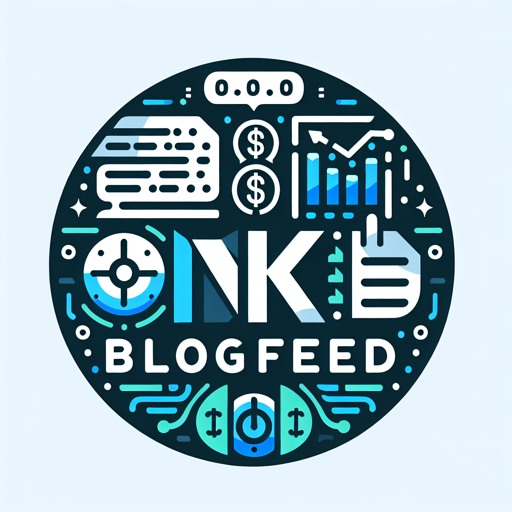Building a strong professional network is essential for anyone looking to advance their career or explore new opportunities. It begins with understanding the value of connections and how they can open doors that might otherwise remain closed. You should start by identifying individuals in your field or related industries who can provide insights, mentorship, or even job leads.
This could include colleagues, former classmates, industry leaders, or even acquaintances you meet through various channels. The key is to approach networking with a mindset of mutual benefit; you should be willing to offer support and resources to others as well. As you begin to expand your network, consider the various ways you can connect with people.
Attend local meetups, join professional organizations, or participate in online forums related to your industry. Each interaction is an opportunity to learn and grow, so be sure to engage actively. When you meet someone new, take the time to ask questions about their work and interests.
This not only helps you understand their perspective but also lays the groundwork for a meaningful relationship. Remember, networking is not just about collecting contacts; it’s about building genuine relationships that can lead to collaboration and support in the future.
Key Takeaways
- Building a strong professional network is essential for career growth and opportunities.
- Leveraging social media platforms like LinkedIn can help expand your network and connect with industry professionals.
- Networking at industry events and conferences provides valuable face-to-face interactions and opportunities to build relationships.
- Utilizing informational interviews is a powerful way to gain insights and expand your network within your industry.
- Nurturing and maintaining relationships in your network is crucial for long-term career success and advancement.
Leveraging Social Media for Networking
In today’s digital age, social media has become an indispensable tool for networking. Platforms like LinkedIn, Twitter, and even Facebook can help you connect with professionals across the globe. You should start by creating a polished and professional profile that highlights your skills, experiences, and accomplishments.
A well-crafted profile serves as your online business card and can attract potential connections who share your interests or professional goals. Make sure to include a professional photo and a compelling summary that reflects your career aspirations. Once your profile is set up, actively engage with others in your field.
Follow industry leaders, join relevant groups, and participate in discussions. Sharing insightful articles or commenting on posts can help you establish your voice within your industry. Don’t hesitate to reach out to individuals whose work you admire; a simple message expressing your appreciation for their insights can go a long way.
Social media allows for more casual interactions, so take advantage of this by being approachable and open to conversations. Remember that networking online is just as important as face-to-face interactions; both can complement each other and enhance your professional presence.
Networking at Industry Events and Conferences

Attending industry events and conferences is one of the most effective ways to expand your professional network. These gatherings provide a unique opportunity to meet like-minded individuals who share your interests and goals. Before attending an event, do some research on the speakers and attendees to identify key individuals you would like to connect with.
Having a plan in place will help you make the most of your time there. Prepare a few conversation starters or questions that can help break the ice when meeting new people. During the event, be proactive in introducing yourself to others.
Approach individuals with confidence and be genuinely interested in what they have to say. Networking at these events is not just about exchanging business cards; it’s about forming connections that could lead to future collaborations or opportunities. After the event, follow up with the people you met by sending a personalized message or connecting on social media.
This follow-up is crucial in solidifying the relationship and keeping the lines of communication open. Remember, the connections you make at these events can be invaluable as you navigate your career path.
Utilizing Informational Interviews for Networking
Informational interviews are a powerful yet often underutilized tool for networking. They provide an opportunity for you to gain insights into a specific industry or role while simultaneously building relationships with professionals who are already established in that space. To initiate an informational interview, identify individuals whose careers you admire or who work in companies you’re interested in.
Reach out with a polite request for a brief conversation, emphasizing your desire to learn from their experiences rather than seeking job opportunities directly. During the interview, come prepared with thoughtful questions that demonstrate your interest in their career path and industry trends. Ask about their day-to-day responsibilities, challenges they face, and advice they would offer someone looking to enter the field.
This not only shows that you value their expertise but also allows you to gather valuable information that can guide your own career decisions. After the conversation, be sure to express your gratitude for their time and insights. A simple thank-you note can leave a lasting impression and keep the door open for future interactions.
Nurturing and Maintaining Relationships in Your Network
Building a network is just the first step; nurturing and maintaining those relationships is equally important. Regular communication is key to keeping connections alive. You should make it a habit to check in with your contacts periodically, whether through a quick email, a phone call, or even a coffee catch-up if possible.
Share updates about your career progress or interesting articles that might resonate with them. This not only keeps you on their radar but also reinforces the idea that you value the relationship. Additionally, consider how you can support others in your network.
If you come across an opportunity that might interest someone or know of a resource that could benefit them, don’t hesitate to share it. Being proactive in offering assistance fosters goodwill and strengthens your connections. Remember that networking is a two-way street; by investing time and effort into maintaining relationships, you create a supportive community that can help you navigate challenges and celebrate successes together.
Networking for Career Advancement

Clearly Communicating Your Career Goals
When you actively engage with your network, you increase your chances of being recommended for positions that align with your skills and aspirations. This is why it’s important to communicate your career goals clearly to those in your network; they can only help if they know what you’re looking for.
The Power of Mentorship
Moreover, networking can provide access to mentorship opportunities that are invaluable for professional growth. A mentor can offer guidance based on their own experiences, helping you navigate challenges and make informed decisions about your career path.
Building a Foundation for Long-Term Success
By building strong relationships with experienced professionals, you position yourself for advancement within your field. Remember that networking is not just about immediate gains; it’s about creating a foundation of support that will benefit you throughout your career journey. In conclusion, building and leveraging a strong professional network is essential for anyone looking to advance their career or explore new opportunities. By actively engaging with others through various channels—whether online or in person—you can create meaningful connections that will serve you well throughout your professional life.

